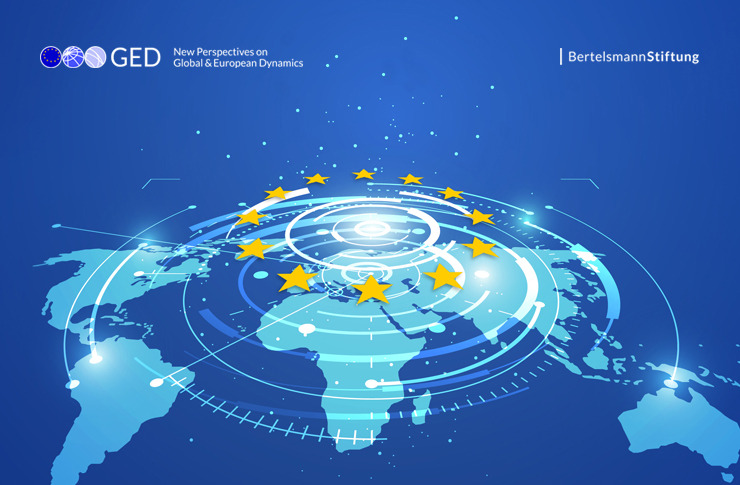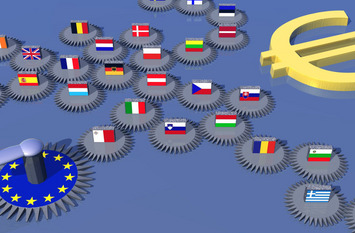
|
December 2022
Dear Readers,
Our final edition of GED Monthly presents the findings of our long-standing Sustainable Governance Indicators (SGI) project, a data-driven guide for good governance practice across the EU and OECD. Worryingly, it reports a decline in the quality of core democratic institutions and processes and concludes that EU member states will need to do more in the future to defend democracy.
Further articles concern the deliberations of our transatlantic foresight experts, who considered the future of the Trade and Technology Council, the Inflation Reduction Act and relations with China. Staying in Asia, we set out why the Pacific region could well be a test case for an EU geopolitical trade strategy.
We move on to the rich set of data thrown up by our Future of Cohesion study published earlier this autumn, looking at the history of EU convergence and the specific complications of the rural-urban divide.
Finally, before assessing the implications of the stalled trade talks between Switzerland and the EU, our team from eupinions continues its tracking of public opinion with regard to Ukraine, showing that while solidarity in Europe remains strong, it must not be taken for granted.
On this note, we would like to thank you for your loyal readership throughout 2022. We wish you all the best for the festive season and look forward to connecting with you in the New Year!
Stephan Vopel and Malte Zabel
Director and Co-Director
Europe’s Future Program
|
|
|
|
|

Sustainable Governance Indicators: Threats to Democracy
For the first time since 2004, the Bertelsmann Stiftung’s Transformation Index (BTI) counts more autocratically governed states than democracies. The Bertelsmann Stiftung’s Sustainable Governance Indicators (SGI) project now also reports a decline in the quality of core democratic institutions and processes in EU and OECD developed countries. We set out both key results and recommendations.
Read more
|

New Transatlantic Foresights: TTC, IRA and China
How can the U.S. and the E.U. find common ground on data governance, tech standards and clean technologies? How can further alignment on addressing the growing rivalry with China be fostered and turned into concrete joint policy action? And where do our largest critical dependencies lie? These and more matters were addressed by our transatlantic expert group that met in November.
Read more
|
|
|
|
|

Asia Pacific: The Test Case for a Geopolitical EU Trade Strategy
The Asia Pacific is a key region for future global growth in terms of market size and purchasing power. For this reason and in view of the growing tensions with China, it should be in the foremost political and economic interest of the EU to pursue a strong and assertive trade policy in this vital region and increase its implementation efforts. We set out four ways of doing this.
Read more
|

EU cohesion I: A Brief History of Upward Convergence
Our study on the Future of EU Cohesion showed how the green and digital transition could alter the landscape of economic prosperity across European regions, favouring strong regions, whilst leaving weak regions behind. We looked at the historical data to work out how this finding relates to the development of economic cohesion since the early 1990s.
Read more
|
|
|
|
|

EU Cohesion II: The Urban-Rural Divide in European Regions
Our study on the Future of European Cohesion also highlighted a growing economic divide between urban and metropolitan regions specialised in knowledge-intensive and high-tech sectors on the one hand, and remote regions specialised in agriculture and low-technology on the other. We take a closer look at the special challenges presented by this dividing line that threatens cohesion in Europe.
Read more
|

Public Opinion: Will Support for Ukraine End with the Summer?
Will solidarity with Ukraine fade as winter approaches? This is the question many analysts are posing as we face dropping temperatures and rising living costs. The data featured in our report from October 2022 pointed to a consistently high level of support between March and June 2022. Now we publish data that tracks the changing views on Ukraine from March to September 2022.
Read more
|
|
|
|
|

The Economic Implications of Stalled EU-Swiss Trade Talks
In May 2021, Swiss leaders formally ended talks with the European Commission to create a trade framework encapsulating a raft of separate free trade agreements between Switzerland and the European Union. Since then, there has been little progress to consolidate the deals that define the EU-Swiss relationship. We assess the state of play - and its implications for third parties.
Read more
|
|
|
|
|
In the next edition
|
|
|
|
We will kick of the new year with a month-by-month outlook of the key events, anniversaries and challenges faced by Europe in 2023. See you then and there!
To keep abreast of our work, please keep an eye on our blog: globaleurope.eu
Or follow us on social media: http://twitter.com/GED_Tweet
|
|
|
|
|
|
|
|
|
|
|
|